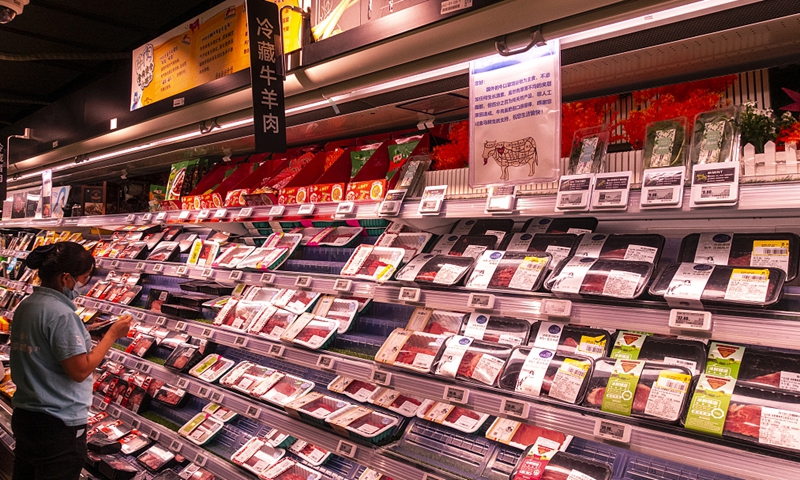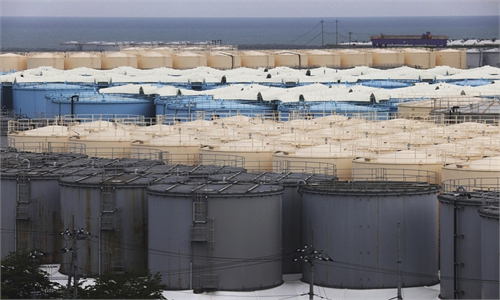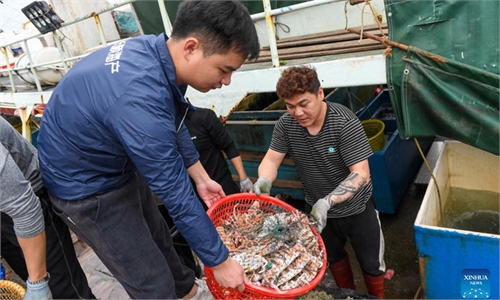China expands access for imported food, agricultural products, fostering globally shared market

Imported beef is sold in a supermarket in Shanghai. Photo: VCG
China continues to expand its agricultural and food product market access, fostering a globally shared market and generating new development opportunities for the world. As part of recent developments in the sector, 38 Brazilian meat enterprises were granted export qualifications for China, as announced by the General Administration of Customs (GAC).
China is promoting high-quality imports alongside its growing domestic production and consumption capabilities, Wang Lingjun, a vice minister of the GAC, said on Tuesday during a press conference.
"In 2023, China approved imports of 146 agricultural and food products from 51 countries and regions," Wang noted.
China is adopting an opening-up policy for international high-quality products. From New Year's Day to the Spring Festival this year, China had imported more than 1.25 million tons of edible oil, 1.1 million tons of fruits and nuts, and 850,000 tons of meat, said Wang.
As China advances its opening-up policies, more and more foreign brands are seizing the immense opportunities presented by China's vast market potential. The trend has led to an increasing number of international brands expanding within the Chinese market, Zhu Danpeng, a veteran food industry analyst, told the Global Times on Tuesday.
The GAC has continued broadening the import of high-quality agricultural products, enhancing China's position as an open and gigantic market.
In a recent move, the GAC approved pork imports from Austria on Friday, with detailed regulations on the products, production enterprises, and quarantine requirements.
The action followed a GAC announcement in late February to lift a ban on Spanish beef imports. The ban started in 2000 due to multiple cases of "mad cow" disease reported in the EU.
"Imported high-quality agricultural and food products not only meet domestic consumption demand but also push domestic industries toward high-quality development," said Zhu, noting that importing premium foreign agricultural and food products could help upgrade China's own food industry, integrating international brands and quality into the Chinese market.
Beyond agricultural and food products, China's import spectrum is broadening, offering new development opportunities for the world.
In the first two months of 2024, China's imports spanned more than 200 countries and regions, with significant growth from Central Asia, up 13.4 percent year-on-year. Imports from Latin America increased 11.3 percent and those from Africa increased 7.9 percent, according to the GAC.
"Imports of integrated circuits, metal ores and crude oil have also seen substantial growth, showing China's commitment to providing a growing market, investment, and cooperation opportunities globally," Wang said.



